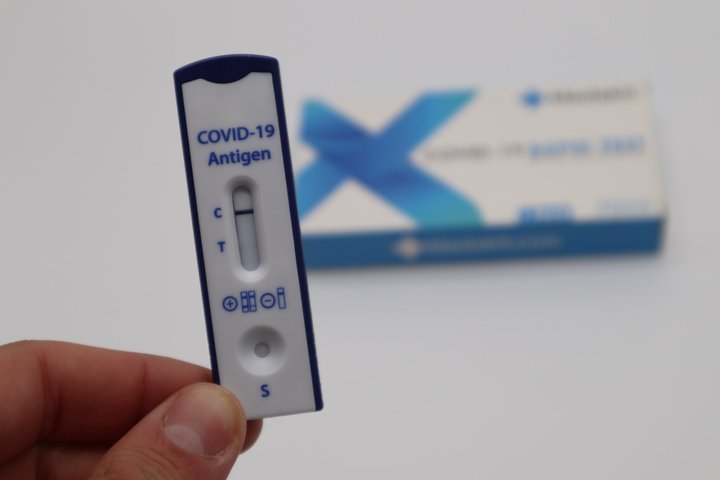“Testing
is how we end this pandemic without disrupting society.”
— Dr. Michael Mina, Harvard epidemiologist)
Where we’re at (The bad news)
The G7 represents the seven wealthiest large democracies: US, Britain, Canada, France, Germany, Italy and Japan. We score last in the percentage of population vaccinated against Covid, plus our death rate is much worse than the other six; the US currently has an average of 0.6 deaths per 100,000 daily while the UK is next with just a third of that. Mainly due to the Delta variant, some 2,000 Americans are dying every day. A couple of weeks ago, the number of deaths from Covid in the US passed a milestone, exceeding the estimated number of Americans who died in the 1918-‘19 flu epidemic, 675,000.
Testing, testing … (Let’s hear it for antigen tests!)
The two most common tests for Covid are: the antigen test (aka lateral flow or RADT, rapid antigen detection test) which can be done at home if you choose (about $12 each), with results in a few minutes; and the PCR (polymerase chain reaction) test, which has to be processed in a lab, with results available in 24 hours or more. If you get tested at the Wharfinger, you get PCR tested, with the results emailed from the lab in Sacramento one to four days later.

Photo by Medakit Ltd on Unsplash
While PCR tests are more accurate, they’re sometimes too accurate, since they can return positive results for someone who was infected several weeks earlier and is no longer contagious. Not only that, but if you’re positive, you’re walking around potentially infecting people while waiting a day or two for your result.
Rapid 20-30 minute antigen tests, on the other hand, identify about 98% of people who are infectious, giving them the news virtually immediately, so they can protect family and friends from the virus they’re carrying.
Europe, including Britain, has far fewer cases of Covid per 100,000 people than the US, which some experts like Michael Mina (above) attribute to the widespread use of easily available and free antigen tests. See this link.

View from Durham (UK) cathedral tower last week. Top, Durham Castle; below right, free rapid antigen test facility. Photo: Barry Evans.
Booster shots (In our future)
Covid-19 isn’t going to go away anytime soon, and most experts say it’ll end up like the flu: every year, you’ll get a shot against whatever new variant has been identified. Fortunately, with the introduction of mRNA vaccines, which can be rapidly designed and manufactured, this will become routine.
Currently, booster shots are available in the US for over 65s who got the Pfizer vaccine, plus anyone 18-65 either with certain underlying medical conditions or who are at increased risk of infection—medical personnel, first responders, etc. What about folks like me who got either the Moderna or Johnson & Johnson shots? According to the CDC (September 27), “More data on the effectiveness and safety of Moderna and J&J booster shots are expected soon.”
And that’s about where we’re at. Stay safe!
CLICK TO MANAGE